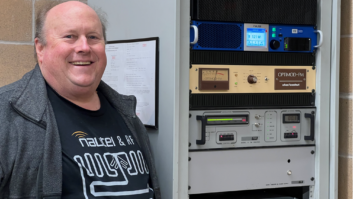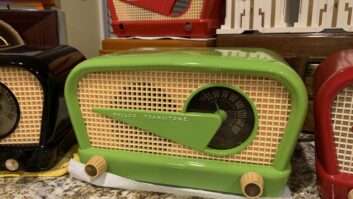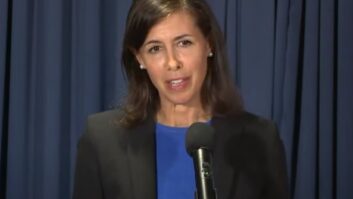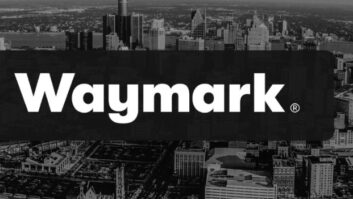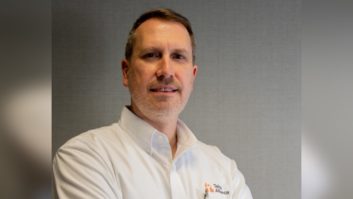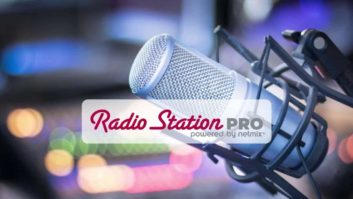Selling history
Jun 1, 2007 12:00 PM
One of the largest — and rarest — radio sets ever made, the WLW Model Super Power Radio Receiver, was sold at auction on April 28 for $55,000.

The WLW Model Super Power Radio
The WLW Model Super Power Radio Receiver (profiled in the April issue of Radio magazine) was built in 1935 by the Crosley Radio Corporation in response to what had previously been hailed the world’s largest radio, the Zenith 1000Z Stratosphere receiver. Crosley built at least three and perhaps as many as 10 of the 35-tube sets, which originally retailed for $1,500 (roughly $20,000 in 2007 dollars).
Except for missing two of its four amplifiers and two speakers, the set auctioned was in excellent condition. Complete, it might have brought $75,000 to $100,000. Only one other example of the Crosley WLW Model is known to exist today.
The sale was conducted by Estes Auctions in Burbank, OH (www.estesauctions.com). Auctioneer Richard Estes also sold a Zenith Stratosphere for $55,000.
Michael A. Banks
Author, Crosley: Two Brothers and a Business Empire that Transformed the Nation
What a coincidence to read last month’s article about the Crosley WLW Super-Power Radio immediately prior to my being able to experience one first hand. People from all over the country gathered in northeast Ohio to attend a recent antique radio auction. A Crosley WLW Super-Power Radio sold for $55,000 as did a rare Zenith Stratosphere console radio. A beautiful yet almost as rare Sparton Nocturne deco mirror radio in great condition sold for $37,500. Many vintage radios in uncommonly colorful Catalin cases sold for over $1,000 each. To be in the presence of so many high quality antique radios was a day that I will never forget. As I sat in the auction gallery I could only think of the historic moments those radios must have informed their owners of over the years. Moreover, I never thought I would see the day when an AM radio would cost more than many brand new broadcast transmitters! My sincere gratitude goes out to everyone who collects and restores antique radios and keeps the memories of the glory days of broadcasting alive for all of us.
Ron Bartlebaugh
director of engineering
The WKSU Stations, Kent State University Kent, OH
More than a cheap radio
As an engineer and consumer of what I engineer, I find it very funny that the May 9, 2007, issue of Digital Radio Update that I received had an article heralding the $60 price tag for Radisosophy’s new HD 100 tabletop clock radio. Yes it has multicast capability and interesting enough an auxiliary input for an Ipod. But where is the aux output to plug into an existing audio system? Or am I allowed to ask � a recording device?
Just another reason why HD Radio will never fly as predicted. Nice technology for AM as long as your blend circuit does not kick in too much. Little improvement for FM. Oh yes, more channels but at bit-rates that even with modern compression algorithms just are not the same as analog. It’s a good thing for HD Radio that the oldies format has been announced as the format with least growth potential but it provides source material that really identifies the artitfacts of digital compression. These algorithms cannot provide enough bass (for any format) and for oldies the combination of master tape hiss and inability to track higher frequencies makes this format sound wishy washy, to put it in layman’s terms. I always thought a Phil Spector recording or a Buddy Holly recording sounded pretty good for the technology of the times until I heard it over HD Radio or even my satellite radio.
I predict the following before HD Radio goes away; I am waiting for the stations around the country to not only make you a member of their listening club by logging in online to their website but to be a �special listener� by getting out the credit card and your HD Radio receiver’s serial number so they will advise their conditional access system to allow you to hear their secondary channels. Oh I can hardly wait to hear the public say �sign me up!� Or will it be; �I have to pay for this now?�
Stations should concentrate on localism, public service and good entertainment. Gee, we knew how to do that once.
Name withheld by request
A dear Harry letter
Chriss:
I took your advice and wrote a letter to Senator Harry Reid about the Radio Goldfield matter.(“License? Who needs a license?“) I wonder how many other broadcasters took the time to do so?
By the way, I drove through Goldfield last week on the way to Reno. The radio station sounded like it was playing somebody’s eclectic collection of music from an Ipod. Other than a station ID, there was nothing that would constitute �local� programming – no news, no weather, no PSAs. So much for the compelling �community service� aspect.
Larry Fuss
president
Contemporary Communications
Las Vegas
April 12, 2007
Senator Harry Reid
528 Hart Senate Office Building
Washington DC 20510
Dear Senator Reid:
As a life-long broadcaster, I am appalled at your actions in the Radio Goldfield matter, in which you, on behalf of the operator of an illegal radio station in Goldfield, NV, circumvented the established rules and regulations of the Federal Communications Commission in order to permit the illegal radio station to continue operating without a license.
Over the years, I have built and operated many small-town radio stations. In every instance, I followed the established procedures for obtaining licensing authority for these stations. It wasn’t always easy, but I went about it the way it was supposed to be done. Your decision to circumvent the FCC’s authority sets a very dangerous precedent. As a result, we can expect to see many more radio stations built without FCC authority, and all justifying it by using Radio Goldfield as an example.
I know from experience that the FCC is incredibly inefficient and sometimes downright incompetent. However, if they’re not doing things the way you or any other lawmaker would like to see them done, then change the rules � don’t dilute their regulatory authority by circumventing established policy that myself and all other legitimate broadcasters have been subject to for years.
I would welcome the opportunity to discuss this or any other broadcast industry matters with you at any time.
Sincerely,
Larry G. Fuss
President – Delta Radio LLC – WROX-AM, WKXY-FM Clarksdale, Mississippi
President – South Seas Broadcasting – KKHJ-FM Pago Pago, American Samoa
Kudos to the budget
Just got my copy of the April issue and noticed the WSTB article while doing a quick perusal. Many nice photos and a good story. All in all, a great article!
Ty Judd
Asst C.E. WKHR-FM





